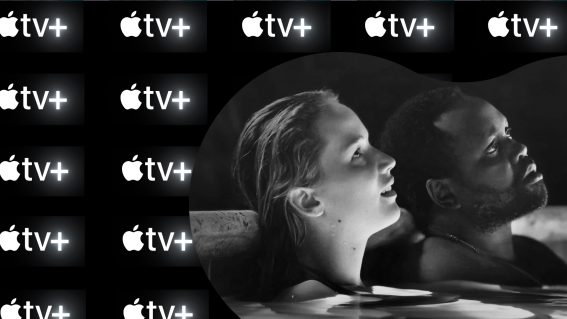On its 30th birthday, John Carpenter’s cult classic They Live is more relevant and compelling than ever
It’s time to revisit John Carpenter’s prophecy of a world clogged by signals and stimulus.
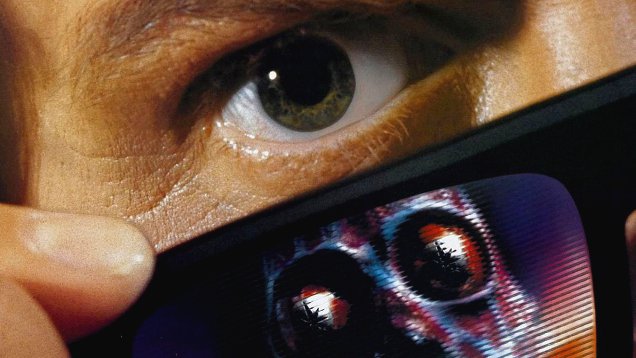
Happy birthday, They Live! John Carpenter’s cult classic is now 30 years old. Critic Luke Buckmaster explains why it has never been more relevant.
In August this year one of the world’s most secretive startups, Magic Leap, released the first iteration of its highly anticipated core product: augmented reality glasses. People don these bulky black frames to observe sights viewable only through them – from sword fighting knights to aliens that enter real-world homes through magical portals.
Just a few months later, director John Carpenter’s classic horror/sci-fi They Live – which first arrived in cinemas on November 4, 1988 – turned 30 years old. This legendary film follows a homeless protagonist named John (Roddy Piper) who happens upon a pair of glasses that reveal a hitherto unseen tier of existence. Through them he observes aliens that walk among us disguised as humans. They have occupied the ruling class, manipulating the masses by planting subliminal messages in the media.
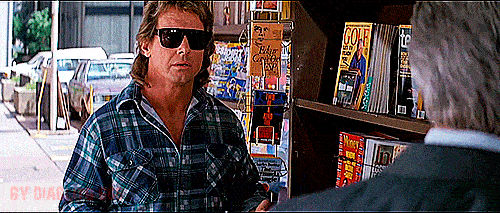
These two events, no doubt, are coincidental. But isn’t this a tantalising way to reconsider They Live on its birthday: as, in general, a prophecy of a world clogged by signals and stimulus, and in specific about a point in time when reality seems crazier than ever – with a form of wacky eyewear that can prove it.
Based on author Ray Nelson’s 1963 short story Eight O’Clock in the Morning, They Live takes place in a dystopian future. Early in the piece we hear a pirate television broadcaster rant about a world where “racial justice and human rights are non-existent,” because of “an oppressive society” which has engineered “the annihilation of consciousness.”
A group of resistance fighters, like the red pill-swallowing crew on board The Matrix’s Nebuchadnezzar, have cottoned on to the grim truth that aliens have enslaved the human race. In They Live the core challenge of this underground resistance is not to fight a battle involving conventional weapons but to find an audience; to cut through all the noise and clamour and have their message heard.
In real-life, at the time of the film’s release in the late 80s, that prerogative – finding the largest possible audience – was largely the domain of marketers and media people. In the age of social media, which is powered by engagement-craving users populating content on platforms that offer forms of self-publishing, that desire has gone into overdrive. How many people will like our post, read our tweet, view our Snapchat story, look at our Instagram picture? Will our message cut through?
Desperation to find audiences in an ecosystem dominated by powerful media interests has been explored in several films, including a couple of greats: Billy Wildler’s 1951 noir Ace in the Hole (about the newspaper industry) and Sidney Lumet’s 1976 satire Network (about television). But in the age of social media, the sense of desperation to cut-through all the noisiness is ubiquitous, with billions of users every day trying, speaking, shouting to be heard.
The sheer desperation John in They Live feels to have his thoughts heard – and the version of reality he sees recognised by somebody else – is encapsulated in a famous punch-on sequence set in a lane way. The protagonist attempts to convince a reluctant friend to wear the glasses, resulting in a preposterous six minute fest of knuckle sandwiches and body slams.
The glasses do more than reveal alien scum walking among us. They also – and this is key to keeping the film relevant as the years roll forward – expose what Carpenter considers the simple truth behind advertising all around us. When John puts on the glasses and looks at a billboard advertising a computer, the ad disappears and is replaced by a single word: ‘OBEY’. Another billboard, depicting a woman on a beach, transforms into ‘MARRY AND REPRODUCE’.
In the present and not-too-distant reality we are about to experience more advertising filling our layers of reality rather than an ability to see through it. In a recent interview, discussing emerging technologies such as virtual and augmented reality, blockbuster director Peter Jackson expressed his belief – and he is far from the only person who thinks this – that AR will soon become “literally a world changing thing on the level that the first laptop computers were.”
This vision we see in They Live, of a billboard-dotted metropolis, may be eerie:
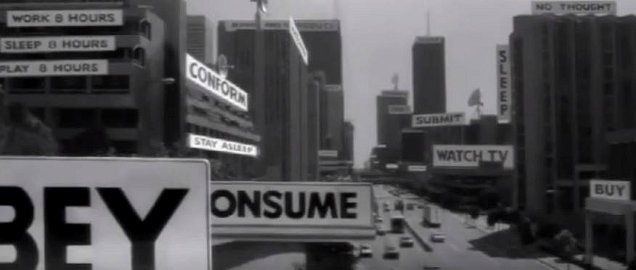
But it’s nothing compared to a more contemporary image like this, created in a short and perhaps prophetic film called Hyper-Reality:
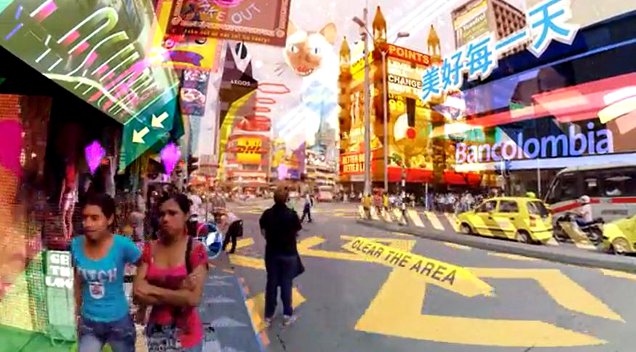
In our augmented future, where companies will be able to put ads literally anywhere, who will control the space in front of our eyes? Who will regulate what we see?
Governments will make deals with the big corporations, no doubt about that, and the space before our eyes will be bought and sold. Joni Mitchell could extend her famous warning about the perils of commercialisation the following (admittedly less catchy) way: ‘They paved paradise, put up a parking lot, then filled it with real and virtual advertising across multiple tiers of existence.’ Maybe the ‘aliens’ prophesied in They Live won’t be aliens at all, but people who have abandoned their humanity to auction off tiers of reality to the highest bidders.
See what watching this film does to you? All of a sudden I feel like the ranting pirate hacking into TV broadcasts, blabbering about a world gone to the dogs. To say They Live holds up well over time barely begins to do it justice. Carpenter’s alarming vision of the future – which includes the world’s coolest and scariest glasses – feels more relevant and compelling than ever.

















